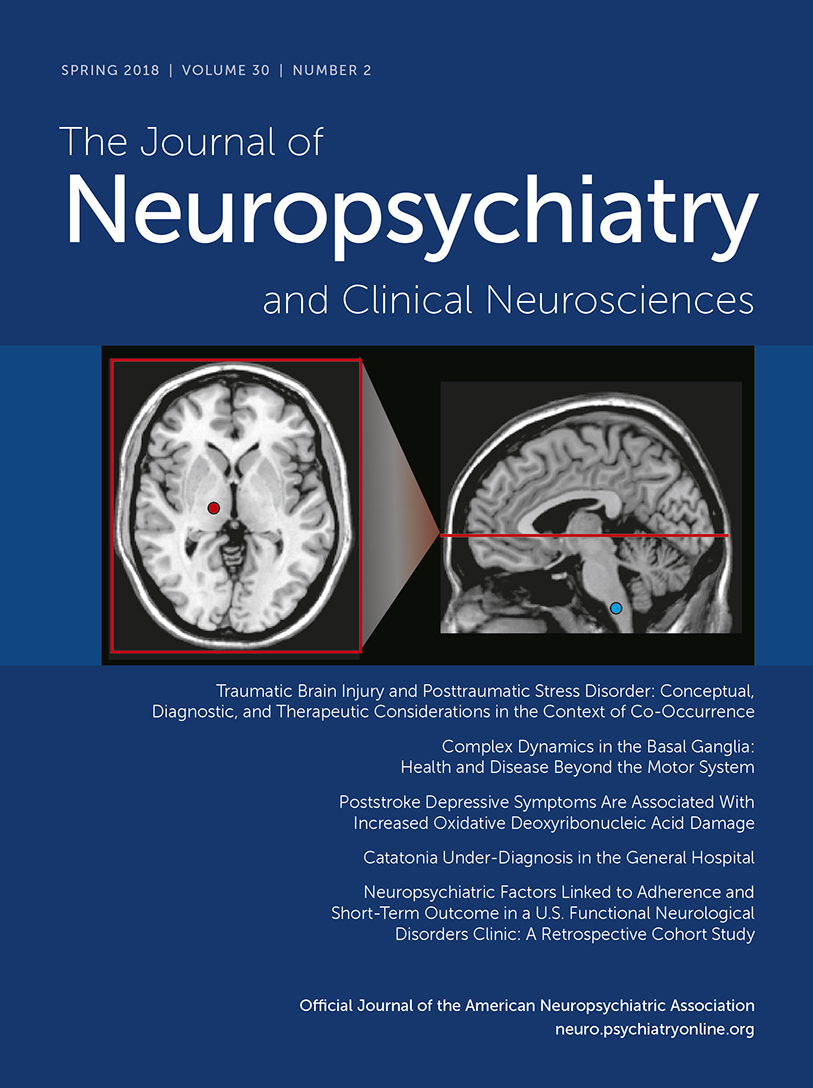Traumatic Brain Injury and Posttraumatic Stress Disorder: Conceptual, Diagnostic, and Therapeutic Considerations in the Context of Co-Occurrence
Abstract
The events leading to traumatic brain injury (TBI) are often psychologically traumatic (e.g., motor vehicle accidents) or occur within a broader context of psychological trauma, such as military combat or recurrent interpersonal violence. In such cases, posttraumatic stress disorder (PTSD) may develop and serve to complicate TBI recovery. Likewise, brain trauma may impede emotional resolution following psychological trauma exposure. This article addresses comorbid PTSD and TBI, including the epidemiology of PTSD following TBI; the clinical presentation of the comorbidity; potential mechanisms that complicate recovery from psychological trauma and TBI when they co-occur; and considerations for the clinical management of PTSD in the context of TBI, including implications for both psychosocial and psychopharmacological PTSD treatments. Although the authors address the full spectrum of TBI severity, because PTSD more commonly co-occurs with mild TBI, compared with moderate and severe TBI, the authors focus in particular on mild TBI.



